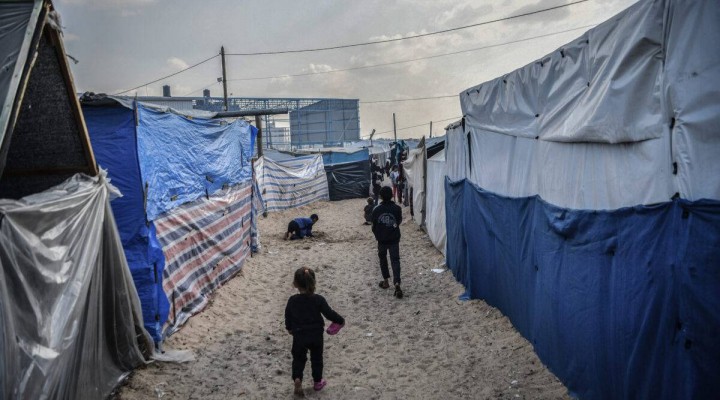
Two op-eds published on Christmas Day, one by Israeli Prime Minister Benjamin Netanyahu in the Wall Street Journal, and the other in the Jerusalem Post by Joel Roskin, geologist and geographer at Bar-Ilan University, both point towards the ethnic cleansing of Palestinians from Gaza. Only Netanyahu’s rhetoric, not his orders, so do slightly more indiscreetly, so as to appeal to the West, whose approval he requires to destroy Gaza completely.
Netanyahu listed three prerequisites for “peace” and no mention of the Israeli hostages who remain in Gaza and under the threat of being killed by the IDF’s bombing. “Hamas must be destroyed, Gaza must be demilitarised, and Palestinian society must be deradicalized.” Of course, Netanyahu requires international complicity and insisted that the international community “should blame Hamas for the massive civilian casualties of the current war”. No, it shouldn’t. Israel is bombing Gaza on the pretext of eliminating Hamas, to sustain a thorough ethnic cleansing campaign against the Palestinian people.
However, the international community has done nothing but haggle over humanitarian pauses and humanitarian aid. Meanwhile, behind closed doors, Netanyahu’s plan for Palestinians in Gaza is “voluntary migration” – Israel’s euphemism for forced transfer, which is prohibited by international law, and which the international community normalised for Israel in the 1948 Nakba.
The news is not surprising, given that Israel’s Intelligence Ministry deems forced transfer the preferred option, and Israeli Likud MK Danny Danon promoted the international law violation last November as a “moral imperative” for Western countries. While the West will likely raise little to no objection to Israel’s forced transfer plans, there is no moral imperative in complying with ethnic cleansing. The problem lies in the international community not having the moral imperative to permanently halt Israel’s colonial violence because its complicity can barely be distinguished from Israel’s actions now.
Roskin’s op-ed reeks of hatred, patronisation and blackmail which completely ignores the political realities of Gaza, including the international community’s refusal to accept the 2006 electoral results and engage in dialogue with Hamas. Egypt, Roskin writes, would be “hailed by the international community as the saviour of the dire plight of Gazans” if it accepts to be complicit in Israel’s ethnic cleansing plans. Roskin hails the Sinai Peninsula as an ideal place for the “resettlement” of Palestinians forcibly displaced from Gaza by Israel’s bombing campaign. Calling forced transfer “genuine rehabilitation programs”, Roskin states, “The ongoing obliteration of Hamas, which terrorizes Palestinian Authority officials and many Gaza residents, may pave the way to the emergence of the proposed Sinai solution, if presented in a wise and discrete manner that conforms to the Middle East mentality.”
So many antagonising words revealing nothing but colonial contempt for the indigenous Palestinian population. Are Palestinians not wise enough to form their own political trajectories, had they been given the space to do so, instead of rendering them perpetual refugees in the humanitarian paradigm, all for Israel’s benefit? If Palestinians in Gaza cannot return to their land, and are forcibly transferred with full blessings of the international community, Gaza may be lost, but there will be no end in sight for the Palestinian anti-colonial struggle.
A people that remembers cannot be lost, not with the knowledge that colonialism is reversible.
https://www.middleeastmonitor.com/20231226-forced-transfer-moral-imperative-and-colonial-contempt/

Ramona Wadi
Ramona Wadi is an independent researcher, freelance journalist, book reviewer and blogger. Her writing covers a range of themes in relation to Palestine, Chile and Latin America.
 TheAltWorld
TheAltWorld
0 thoughts on “Forced transfer, ‘moral imperative’ and colonial contempt”